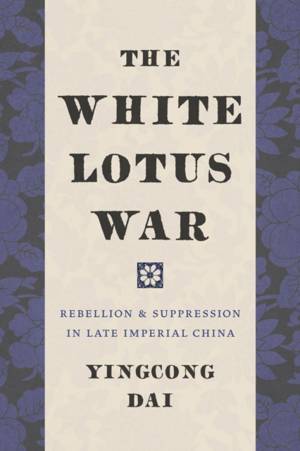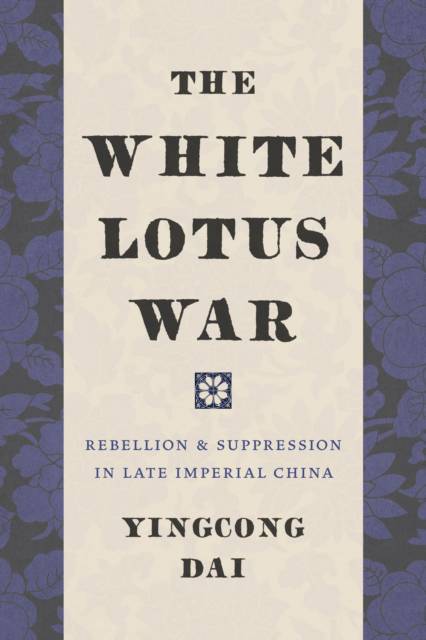
- Retrait gratuit dans votre magasin Club
- 7.000.000 titres dans notre catalogue
- Payer en toute sécurité
- Toujours un magasin près de chez vous
- Retrait gratuit dans votre magasin Club
- 7.000.000 titres dans notre catalogue
- Payer en toute sécurité
- Toujours un magasin près de chez vous
Description
A Choice Outstanding Academic Title
The White Lotus War (1796-1804) in central China marked the end of the Qing dynasty's golden age and the fatal weakening of the imperial system itself. What started as a local rebellion grew into a serious political crisis, as the central government was no longer able to operate its military machine.
Yingcong Dai's comprehensive investigation reveals that the White Lotus rebels would have remained a relatively minor threat, if not for the Qing's ill-managed response. Dai shows that the officials in charge of the suppression campaign were half-hearted about the fight and took advantage of the campaign to pursue personal gains. She challenges assumptions that the Qing relied upon local militias to exterminate the rebels, showing instead that the hiring of civilians became a pretext for misappropriation of war funds, resulting in the devastatingly high cost of the war. The mishandled demilitarization of the militiamen prolonged the hostilities when many of the dismissed troops turned into rebels themselves. The war's long-term impact presaged the beginning of the disintegration of the Qing in the mid-nineteenth century and eruptions of the Taiping Rebellion and other uprisings.
The White Lotus War will interest students and scholars of late imperial and modern Chinese history, as well as history buffs interested in the warfare of the early modern world.
Spécifications
Parties prenantes
- Auteur(s) :
- Editeur:
Contenu
- Nombre de pages :
- 664
- Langue:
- Anglais
- Collection :
Caractéristiques
- EAN:
- 9780295745459
- Date de parution :
- 28-06-19
- Format:
- Livre relié
- Format numérique:
- Genaaid
- Dimensions :
- 152 mm x 231 mm
- Poids :
- 1043 g







